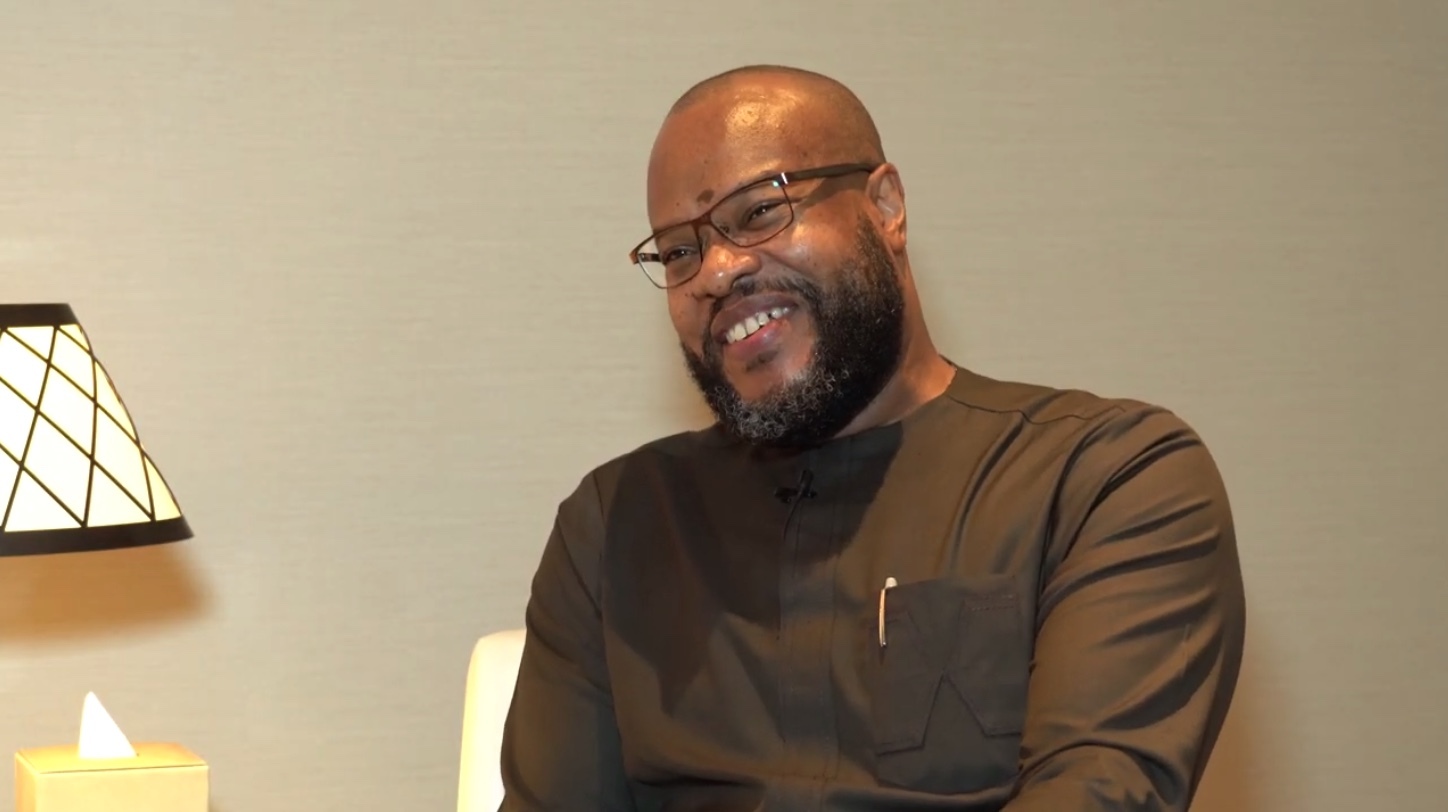A Limitless Future
Jay Alabraba, co-founder of Paga, shares insights on the growing demand for young tech talent.

As one of the earliest fintech entrepreneurs in Nigeria, Paga Co-Founder and Director of Business Development Jay Alabraba has been at the forefront of the evolution of tech and digital transformation on the African continent. We had the opportunity to speak with this visionary entrepreneur — who has helped to grow Paga into Nigeria’s biggest mobile payments company — at the 2022 Doha Forum. Jay shared his thoughts on the future of work after Covid-19 and the growing demand for tech talent from Africa, offering crucial lessons from his journey of building a pioneering fintech company that has amassed over 20 million unique users.
You have achieved incredible success with Paga. What’s your secret?
First of all, thank you. I think there’s still a lot of work for us to do. We have ambitions that are beyond what we’ve done today with Paga, but I would say the secret of our success is really the team. And that’s always been the case. Starting off with the founding team, we work really well together, and we’ve been able to build a strong management team with a very accepting culture of hard work and perseverance. I think across the board, our team members exhibit this.
How would you advise entrepreneurs and business leaders to leverage the opportunities that have been created by technology?
The first thing that comes to mind is not limiting our thinking to Africa alone. I think a lot of the problems that we face here, even in the fintech industry, are problems that exist in many other markets. Most of the countries in Africa are part of the emerging market, and the case is similar in Asia and in Latin America. So it’s important to pick and learn great things from other markets and apply them here, but also be willing to further innovate.
I think we’re going to see a lot more export of talent and a lot more export of innovation and tech from Africa.
In our learning, we must be careful to identify what to do and what not to do. Take China, for example; the super apps like Alibaba and WeChat are a big thing, but they haven’t quite picked up in any African market. So that raises the question of whether there are any cultural factors that make it work there, but don’t make it work in other markets. Essentially, we must take what makes sense, understand it and figure out ways to adapt it to our market.
At Paga, we certainly pay attention to what’s happening in other parts of the world, which is why we’re right here in Doha, where we’re meeting people from many different places, having these conversations and understanding what works for them and what doesn’t.
What excites you about the possibilities of digital transformation and the Fourth Industrial Revolution?
When I think about the Fourth Industrial Revolution and digitisation, what comes to mind is how it will create more access at a cost that makes sense for the masses. So really it’s about inclusion — economic and financial inclusion. Digitisation should lower costs and increase speed. It’s about bringing more people into the formal sector, which overall should improve livelihoods and quality of life as well.
In your opinion, how important is it for young professionals to equip themselves with tech skills?

Credit: TechCrunch
It’s absolutely critical. Young African professionals need to be in line with what’s happening in other parts of the world, and learning these digital skills — everything from coding to STEM education to engineering — is really, really relevant. Africa will have the youngest population in the coming years, and Nigeria, for example, will surpass many of the Western markets in combined population size. In a few years time, it will be critical for Africa to become a source for innovation, so people can look to Africa to see what we’re doing that’s working and take that into their own markets.
There’s already competition with Western markets for tech talent from Africa. The pandemic amplified remote work. Now a person can sit in Lagos and work for an organisation in Sweden.
As a founder at the cutting edge of fintech, are you seeing a growing demand for tech talent?
Absolutely. We’re seeing a massive growing demand for tech talent. There’s already competition with Western markets for tech talent from Africa. The pandemic amplified remote work — now a person can sit in Lagos and work for an organisation in Sweden, and we’re competing with that organisation. So it’s created a global talent market, but more importantly, it has underscored the need to build more talent so we have the supply locally to grow our economies and meet the needs of businesses in Africa.
How do you see Africa developing in the post-Covid landscape?
The things that have happened over the last few years have only strengthened our resolve to do great things on the continent. The understanding of the global problems and the role that Africa will play in solving them is even clearer now. I think we’re going to see a lot more export of talent and a lot more export of innovation and tech from Africa.
What advice would you give to young entrepreneurs and professionals who seek to create an impact?

I would say focus, first of all, on solving real problems. I think one of the things that has happened over the years is a lot of focus on hype and creating stories that may not ultimately have foundational structures that make sense. But there are tons of problems to work on. Focus on solving a real problem, and you will find the customers and you’ll have a story to tell that makes sense.
Find out more about how The ROOM is connecting companies with the in-demand skills of the future through its pool of world-class tech talent.
